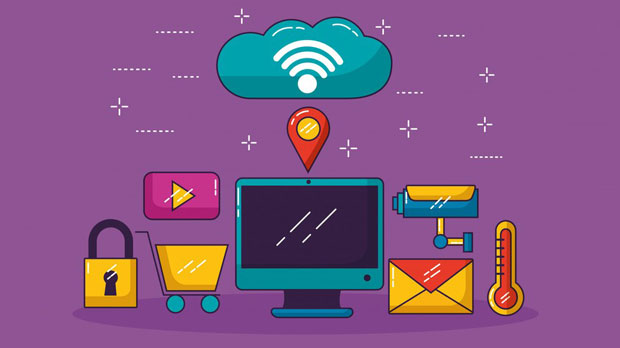In the ever-evolving world of the internet, privacy is an issue of paramount importance for users. Many individuals and businesses rely on proxies for browsing the web anonymously. residential proxies, in particular, have gained significant popularity due to their ability to offer more privacy than traditional data center proxies. One key question that arises is whether using residential proxies to access proxy services, such as Proxy Pirate Proxy, enhances privacy. This article will explore this question in depth, examining the advantages and disadvantages of residential proxies, their impact on user privacy, and the factors that users should consider when choosing between different types of proxies. Understanding Residential ProxiesResidential proxies are IP addresses provided by Internet Service Providers (ISPs) to homeowners. These proxies are considered more private because they appear as legitimate user traffic rather than traffic originating from a data center. When a user connects to the internet through a residential proxy, it appears as though they are using an ordinary home network, making it more difficult for websites to detect and block their activity.The primary advantage of residential proxies lies in their ability to mimic normal internet traffic. This reduces the likelihood of being flagged by websites or online services, which often monitor for suspicious activity. Additionally, since residential proxies use real IP addresses, they tend to have higher success rates in bypassing geographical restrictions and anti-bot mechanisms.How Residential Proxies Enhance PrivacyPrivacy is a fundamental concern for users of proxy services. Residential proxies are known for their superior ability to maintain user anonymity compared to other proxy types, such as data center proxies. Below, we will explore several ways in which residential proxies help enhance privacy:1. Masking Your True LocationOne of the primary benefits of residential proxies is their ability to mask your true geographical location. By using residential proxies, users can make it appear as though they are browsing from a different city, state, or even country. This can be particularly useful for individuals seeking to access content restricted to certain locations or to bypass censorship measures. Moreover, residential proxies provide greater consistency in location, which is often more difficult to detect than the frequent changes seen with other types of proxies.2. Reducing the Risk of DetectionWebsites and online services have become increasingly adept at identifying and blocking traffic from known proxy servers. Data center proxies, for example, are often flagged because they originate from pools of IP addresses that are easily identifiable as belonging to data centers. In contrast, residential proxies are linked to real user devices, making it harder for websites to identify them as proxy traffic. This increased stealth reduces the chances of being detected, providing users with a higher level of privacy when accessing online content.3. Enhanced SecurityWhen using residential proxies, users benefit from the security provided by the proxy provider’s infrastructure. Proxy services typically offer additional layers of encryption and security measures to protect user data from interception or unauthorized access. Since residential proxies route traffic through various home networks, they provide an added layer of protection against cyber threats, such as hacking or phishing attempts. This makes them a more secure option for individuals who prioritize privacy and data protection.4. Less Likely to be Blocked by WebsitesUnlike data center proxies, which are often flagged by websites with advanced anti-proxy measures, residential proxies are less likely to be blocked. This makes them a more reliable option for accessing websites that are known to use sophisticated bot detection techniques. For individuals looking to avoid being detected or blocked while browsing or scraping content from websites, residential proxies offer a more seamless and private browsing experience.Drawbacks of Residential ProxiesWhile residential proxies offer significant privacy advantages, they are not without their drawbacks. It is essential to consider these limitations before relying solely on residential proxies for privacy protection.1. Higher CostResidential proxies are generally more expensive than data center proxies. This is due to the fact that residential proxies use real residential IP addresses, which are harder to obtain and require more resources to maintain. For businesses or individuals who need to use proxies for extended periods or large-scale operations, the cost of residential proxies can add up quickly. Therefore, it is crucial to evaluate whether the enhanced privacy they offer justifies the higher price.2. Slower SpeedsAnother downside of residential proxies is that they tend to offer slower speeds compared to data center proxies. Since residential proxies route traffic through home networks, the connection speed may be impacted by factors such as network congestion or the availability of the IP address. This can result in slower browsing speeds, which may be a drawback for users who require fast and reliable internet access.3. Limited AvailabilityThe availability of residential proxies can also be an issue. Since these proxies rely on real residential IPs, they are in limited supply. Some proxy providers may not offer a wide range of locations, which can limit users' ability to access content from specific regions. Furthermore, if a residential IP address becomes overused or flagged by websites, it may become unavailable for future use, leading to interruptions in service.Using Residential Proxies with Proxy Pirate ProxyWhen using residential proxies to access services like Proxy Pirate Proxy, users can expect an enhanced level of privacy. Proxy Pirate Proxy, like many proxy services, utilizes advanced techniques to mask users' identities and avoid detection by websites. By combining the privacy benefits of residential proxies with the anonymity features of Proxy Pirate Proxy, users can enjoy a more secure and private browsing experience.Residential proxies can help mitigate the risks of being detected by Proxy Pirate Proxy's website. This is particularly important for users who require a high degree of anonymity, such as those involved in web scraping, SEO research, or other privacy-sensitive activities. By utilizing residential proxies, users can enjoy better protection against surveillance, data tracking, and website restrictions.Factors to Consider When Choosing a ProxyWhile residential proxies offer enhanced privacy, they are not the only option available to users. When choosing a proxy service, it is essential to consider several factors, including:1. Purpose of UseUnderstanding your specific needs is crucial when selecting a proxy. If privacy and anonymity are your primary concerns, residential proxies may be the best choice. However, if speed or cost is a more significant factor, data center proxies might be a more suitable option.2. BudgetAs mentioned earlier, residential proxies are typically more expensive than data center proxies. Therefore, it is essential to weigh the cost against the benefits of using residential proxies. If your budget allows, residential proxies can offer superior privacy. However, for users with limited funds, data center proxies may provide a more affordable alternative.3. Security FeaturesWhen selecting a proxy service, it is essential to consider the security features offered. Look for services that provide robust encryption, protection against IP leaks, and additional privacy tools. Choosing a provider with a strong reputation for security will ensure that your data remains protected while browsing.ConclusionUsing residential proxies to access proxy services, such as Proxy Pirate Proxy, can indeed enhance privacy by masking your true location, reducing the risk of detection, and providing added security. While they may come with higher costs and slower speeds, the privacy benefits make them an attractive option for individuals and businesses seeking to protect their online identities. However, it is essential to evaluate your specific needs and budget before making a decision. In any case, residential proxies offer a valuable tool for anyone prioritizing online privacy in today's digital landscape.
Jul 17, 2025



































































